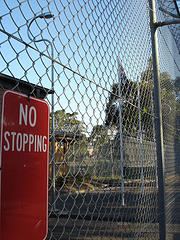
State and Federal Attorneys-General have agreed to continue to work towards ratification of an anti-torture treaty that will enable independent inspections of Australian detention centres, prisons and psychiatric wards.
If ratified, the Optional Protocol to the Convention against Torture (OPCAT) will require Australian prisons, police stations, juvenile detention centres, immigration detention centres and secure mental health facilities to be independently monitored and inspected to ensure they comply with the international treaty standards.
OPCAT figured in discussions last week between the Commonwealth, State and Territory Attorneys-General, who met in Canberra for the Standing Council on Law and Justice (SCLJ).
The SCLJ confirmed the Ministers’ intention to work towards OPCAT ratification and to ‘prioritise the
preparation of jurisdictional legislation to provide for visits to Australia by
the United Nations Subcommittee on the Prevention of Torture.’
Earlier this year, the Federal Government tabled in
Parliament a National Interest Analysis that proposed Australia ratify OPCAT.
‘Ratifying OPCAT will send a strong message both
within Australia and internationally that Australia takes its human rights
obligations seriously,’ Attorney-General Nicola Roxon said.
The tabling of the National Interest Analysis followed a December 2011 letter
to the Attorney-General signed by PIAC and 28 other organisations including Amnesty International Australia and Civil Liberties Australia, urging the Government to take action on OPCAT.
The Joint Standing Committee on Treaties will now consider OPCAT and will report on 28 June 2012.
If you or your organisation can assist with
PIAC’s campaign to ensure that OPCAT is ratified as soon as possible, please
contact Peter Dodd at PIAC on (02) 88986523 or at [email protected].
Related coverage: More checks on detention, Sydney Morning Herald, 13 April 2012
Read the SCLJ communique, April 2012.
Photo: Flickr